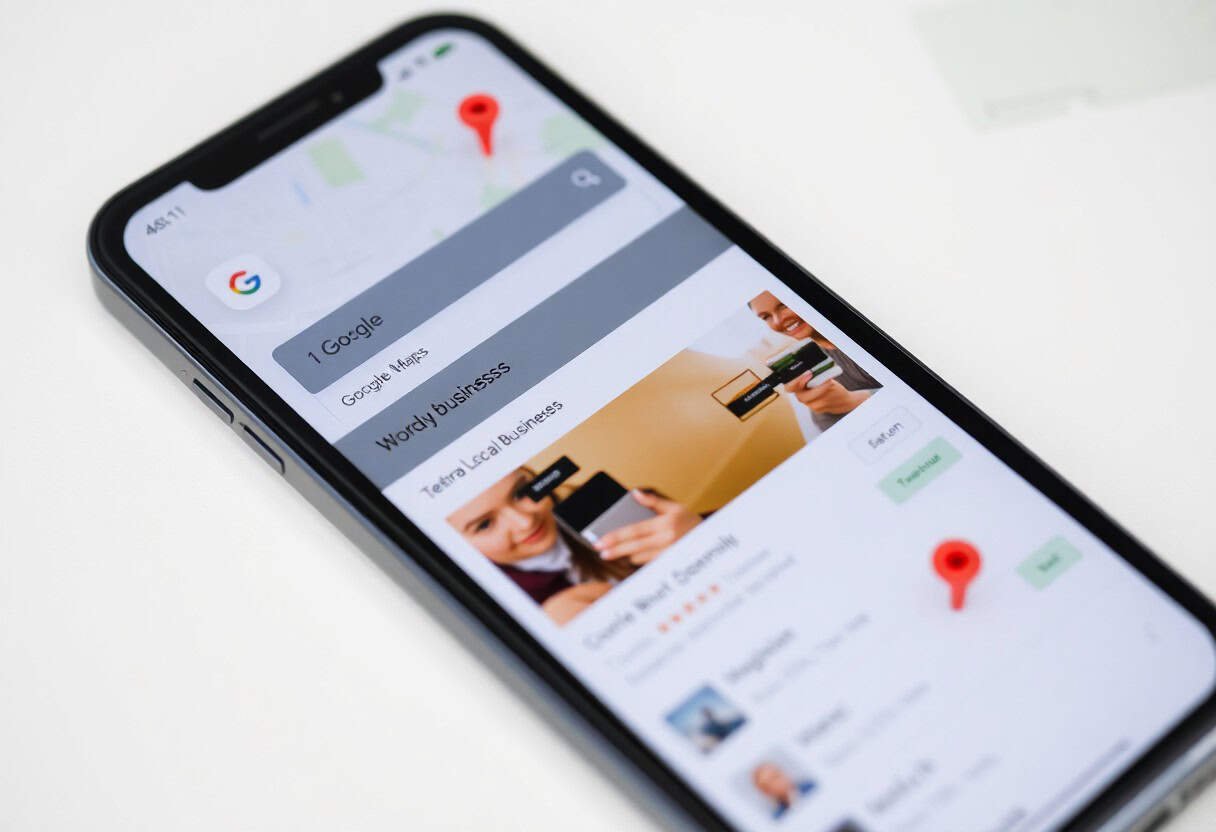You may be wondering how Google Maps determines the visibility of local businesses in its search results. Understanding this process can significantly impact your business’s online presence. Factors like relevance, distance, and prominence play key roles in how your listing is ranked. By optimizing your business information and engaging with customer reviews, you can enhance your chances of appearing higher in local searches, ultimately driving more traffic to your location.

Key Takeaways:
- Google Maps rankings are influenced by relevance, distance, and prominence of businesses.
- Business information accuracy, including hours, name, and address, plays a significant role in ranking.
- Customer reviews and engagement levels impact visibility in search results.
The Algorithms at Play: Decoding Google’s Ranking Mechanisms
Understanding Google’s ranking algorithms involves recognizing multiple factors that contribute to how locations are prioritized in search results. Google harnesses sophisticated algorithms to evaluate numerous signals in real-time, ensuring that users receive the most relevant results tailored to their needs. Elements such as business legitimacy, user reviews, and geographic considerations all play vital roles in influencing where you appear on the map. Accurate information and optimizing your online presence can significantly enhance visibility and attract more customers.
How Relevance and Proximity Influence Rankings
Your business’s relevance and proximity to the searcher’s location are pivotal for ranking in Google Maps. If you own a coffee shop, for example, Google will prioritize your establishment in search results for users near your location seeking coffee. The more closely your business aligns with user intent and local context, the higher you rank. Ensuring your Google My Business profile accurately reflects your services helps enhance both relevance and visibility in local searches.
Understanding User Engagement Signals
User engagement signals significantly impact your ranking on Google Maps. These signals include click-through rates, average time spent on your business listing, the frequency of customer interactions, and the volume of positive reviews. High engagement indicates to Google that your business is valuable and relevant to users, leading to improved search rankings. Maintaining active communication with customers and encouraging reviews can enhance these signals, further boosting your business’s perception and visibility.
Engagement metrics provide insights into user behavior and preferences, which Google exploits to fine-tune rankings. For instance, listings that boast a higher number of clicks or customer queries signal greater relevance and trustworthiness. Notably, businesses responding promptly to reviews also see an uptick in user interactions, reflecting positively in search rankings. Moreover, features like Google Posts can engage potential customers by sharing updates, increasing interaction rates with your listing. As a result, fostering a community around your business can influence not only rankings but also customer loyalty.

The Role of Business Information: Nailing Your Google My Business Profile
Your Google My Business (GMB) profile serves as the backbone of your visibility on Google Maps. This profile not only influences your ranking but also provides potential customers with necessary information about your business, including your hours of operation, location, and services offered. Optimizing this profile ensures that you stand out in local searches and attract more visitors to your business.
Essential Elements of an Optimized Profile
An optimized GMB profile includes necessary elements such as your business name, address, phone number, website link, and hours of operation. Additionally, providing high-quality images, a detailed business description, and categories relevant to your services further enhances your profile. Regular updates and engagement through posts or customer interactions can also improve your visibility and appeal.
The Impact of Consistency and Accuracy on Visibility
Consistency and accuracy in your GMB profile directly affect your ranking and visibility in search results. Mismatched information across different platforms can confuse both users and search engines, leading to lower trust and visibility. Ensuring that your business details remain uniform across all online listings reinforces your credibility and can improve your chances of appearing higher in search results.
Maintaining consistency is not just about having the same name, address, and phone number across platforms; it also involves keeping your overall brand messaging aligned. For example, a company that presents its services differently on social media than on its GMB profile may confuse potential customers, leading to decreased engagement and inquiries. Studies show that businesses with accurate and consistent information can achieve up to 41% higher click-through rates when searching for local services. Prioritize regular audits of your listing and other online presences to ensure maximum accuracy, thus enhancing your business’s visibility on Google Maps.
Local SEO Strategies: Enhancing Your Map Listings
Optimizing your Google Maps listing requires a focused approach to local SEO that enhances visibility and engagement. Implementing strategies such as optimizing your business profile with accurate information, engaging visuals, and targeted keywords can significantly improve your chances of ranking higher in local searches. Consistency across all online platforms, along with leveraging local citations and backlinks, strengthens your credibility and relevance, making it easier for potential customers to find you on the map.
Techniques to Boost Local Search Rankings
Boosting your local search rankings hinges on several techniques, starting with ensuring that your Google My Business profile is fully optimized. This includes selecting appropriate categories, utilizing local keywords, and maintaining updated contact information. Additionally, creating localized content and employing schema markup can enhance your results. Establishing backlinks from locally relevant websites helps in building authority and improves search results as well.
Leveraging Reviews and Ratings for Enhanced Trust
Cultivating positive reviews and ratings is important for enhancing trust and credibility in local searches. Actively requesting feedback from satisfied customers and responding promptly to both positive and negative reviews signals to potential clients that you value customer experience, which in turn influences their purchasing decisions.
Positive reviews contribute significantly to your local search rankings, with studies indicating that businesses with higher ratings garner more clicks and inquiries. For instance, a 5-star rating on Google can boost conversion rates by up to 30%. Engaging with reviewers by addressing their comments showcases your commitment to quality service, while frequent interactions on platforms like Google My Business can increase your visibility in search results, making you stand out in competitive markets.
Navigating Competitor Dynamics: The Competitive Landscape of Google Maps
Your success on Google Maps doesn’t occur in a vacuum; understanding competitor dynamics is imperative. Examine how competing businesses position themselves, their customer reviews, and their engagement efforts. This landscape shifts constantly, requiring you to stay informed about competitor updates, promotional strategies, and community engagement levels to maintain your competitive edge.
Analyzing Your Competitors’ Success Factors
Investigating what drives your competitors’ success can unveil valuable insights for your strategy. Look closely at their customer feedback, listing optimization tactics, and social media interactions. Note common themes in popular reviews, as they can guide your improvements. Key success factors may include:
- Customer satisfaction ratings
- Effective use of keywords
- Engaging multimedia content
Thou must adapt based on these observations to enhance your standing.
Adapting to Market Trends and Changes
Market trends influence consumer behavior and expectations, making it vital to stay agile. Regularly monitoring industry shifts or emerging technologies allows you to recalibrate your Google Maps strategy accordingly. For instance, if mobile search usage spikes or a new local service becomes popular, responding promptly with relevant content can keep you competitive. Embrace tools like Google Trends or local demographic reports to forecast these changes and adjust your marketing activities effectively.
The Future of Map Rankings: Predictions and Evolutions
As technology progresses, map ranking algorithms will evolve to incorporate more dynamic user behavior insights and real-time data. Expect the integration of advanced AI and machine learning to refine results based on interactions and preferences. This evolution will create a more personalized mapping experience, where context-driven searches yield increasingly relevant outcomes, ultimately reshaping how you utilize Google Maps in your local SEO strategies.
Emerging Technologies Shaping Search Results
Technologies such as augmented reality (AR) and machine learning are poised to revolutionize search rankings on Google Maps. AR can provide users with visual overlays of information in real time, enhancing engagement. Additionally, machine learning algorithms will increasingly analyze user patterns to predict searches more accurately, ensuring that your listings remain competitive and visible in an ever-evolving digital landscape.
Anticipating Google’s Next Moves in Ranking Algorithms
Google’s ongoing refinement of its ranking algorithms suggests an increased emphasis on user intent and local context. Future updates may leverage artificial intelligence to assess not just location-based factors but also user-generated content, such as reviews and social media integration. Staying ahead involves actively managing your online presence and engaging with customers to foster authenticity and relevance within Google’s ecosystem.
Continued shifts toward personalized search experiences will likely drive Google to prioritize factors like real-time user engagement and semantic search capabilities. Leveraging data analytics to understand your audience’s preferences can position your business favorably. Expect more integration of location data with local trends, forcing businesses like yours to keep offerings aligned with user expectations dynamically. Being proactive in managing reviews and employing local content strategies will also play a significant role in maintaining organic visibility on Google Maps.
To wrap up
To wrap up, understanding Google Maps ranking can significantly enhance your local visibility. By optimizing your Google Business Profile with accurate information, maintaining positive reviews, and engaging with your customers, you can improve your position in local search results. Additionally, ensuring your business information is consistent across online directories and utilizing local SEO practices will further strengthen your presence. By focusing on these aspects, you can effectively boost your ranking and attract more customers through Google Maps.
FAQ
Q: What factors influence Google Maps ranking?
A: Google Maps ranking is influenced by various factors including relevance, distance, and prominence. Relevance assesses how well a business matches a user’s search query. Distance considers how close the business is to the user’s location. Prominence takes into account how well-known a business is, factoring in reviews, ratings, and online presence.
Q: How do customer reviews affect Google Maps ranking?
A: Customer reviews significantly impact Google Maps ranking by influencing both prominence and overall perception. Positive reviews can improve a business’s visibility, while a higher volume of reviews can contribute to online authority. Google evaluates the quality and recency of reviews, thus businesses should proactively encourage satisfied customers to share their experiences.
Q: Can businesses change their Google Maps ranking?
A: Yes, businesses can impact their Google Maps ranking by optimizing their Google Business Profile. This includes ensuring accurate information, adding high-quality images, maintaining an active presence, responding to reviews, and utilizing local SEO strategies. Regular updates and engagement with customers can further enhance ranking potential.

